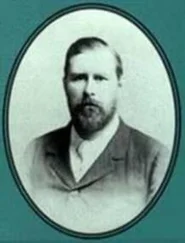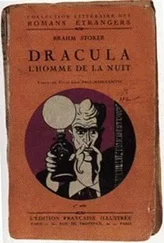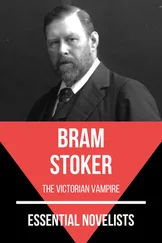Lucy
P.S.—Oh, about number Three, I needn’t tell you of number Three, need I? Besides, it was all so confused. It seemed only a moment from his coming into the room till both his arms were round me, and he was kissing me. I am very, very happy, and I don’t know what I have done to deserve it. I must only try in the future to show that I am not ungrateful to God for all His goodness to me in sending to me such a lover, such a husband, and such a friend.
Goodbye.
DR. SEWARD’S DIARY (Kept in phonograph)
25 May.— Ebb tide in appetite today. [90] Ebb tide in appetite today. – Полное отсутствие аппетита сегодня.
Cannot eat, cannot rest, so diary instead. Since my rebuff of yesterday I have a sort of empty feeling. Nothing in the world seems of sufficient importance to be worth the doing. As I knew that the only cure for this sort of thing was work, I went amongst the patients. I picked out one who has afforded me a study of much interest. He is so quaint that I am determined to understand him as well as I can. Today I seemed to get nearer than ever before to the heart of his mystery.
I questioned him more fully than I had ever done, with a view to making myself master of the facts of his hallucination. In my manner of doing it there was, I now see, something of cruelty. I seemed to wish to keep him to the point of his madness, a thing which I avoid with the patients as I would the mouth of hell.
(Mem., Under what circumstances would I not avoid the pit of hell?) Omnia Romae venalia sunt. Hell has its price! If there be anything behind this instinct it will be valuable to trace it afterwards accurately, so I had better commence [91] commence – начинать
to do so, therefore…
R. M, Renfield, age 59. Sanguine temperament, great physical strength, morbidly excitable, periods of gloom, ending in some fixed idea which I cannot make out. I presume that the sanguine temperament itself and the disturbing influence end in a mentally-accomplished finish [92] mentally-accomplished finish – полное душевное расстройство
, a possibly dangerous man, probably dangerous if unselfish. In selfish men caution is as secure an armour for their foes as for themselves. What I think of on this point is, when self is the fixed point the centripetal force is balanced with the centrifugal . [93] What I think of on this point is, when self is the fixed point the centripetal force is balanced with the centrifugal. – Вот что я думаю на этот счет – когда точкой, где все фокусируется, является эгоизм, центростремительная сила уравновешивается центробежной.
When duty, a cause, etc., is the fixed point, the latter force is paramount, and only accident or a series of accidents can balance it.
LETTER, QUINCEY P. MORRIS TO HON. ARTHUR HOLMOOD
25 May.
My dear Art,
We’ve told yarns by the campfire in the prairies [94] We’ve told yarns by the campfire in the prairies – Мы рассказывали друг другу истории на бивуаке в прериях
, and dressed one another’s wounds after trying a landing at the Marquesas, and drunk healths on the shore of Titicaca. There are more yarns to be told, and other wounds to be healed, and another health to be drunk. Won’t you let this be at my campfire tomorrow night? I have no hesitation in asking you, as I know a certain lady is engaged to a certain dinner party, and that you are free. There will only be one other, our old pal at the Korea, Jack Seward. He’s coming, too, and we both want to mingle our weeps over the wine cup, and to drink a health with all our hearts to the happiest man in all the wide world, who has won the noblest heart that God has made and best worth winning. We promise you a hearty welcome, and a loving greeting, and a health as true as your own right hand. We shall both swear to leave you at home if you drink too deep to a certain pair of eyes. Come!
Yours, as ever and always,
Quincey P. Morris
TELEGRAM FROM ARTHUR HOLMWOOD TO QUINCEY P. MORRIS
26 May
Count me in every time. I bear messages which will make both your ears tingle. [95] I bear messages which will make both your ears tingle. – У меня есть такая новость, что берегите уши.
Art
MINA MURRAY’S JOURNAL
24 July. Whitby.—Lucy met me at the station, looking sweeter and lovelier than ever, and we drove up to the house at the Crescent in which they have rooms. This is a lovely place. The little river, the Esk, runs through a deep valley, which broadens out as it comes near the harbour. Right over the town is the ruin of Whitby Abbey, which was sacked [96] sack – расхищать, грабить
by the Danes, and which is the scene of part of “Marmion,” where the girl was built up in the wall. It is a most noble ruin, of immense size, and full of beautiful and romantic bits. There is a legend that a white lady is seen in one of the windows. Between it and the town there is another church, the parish [97] parish – приходский
one, round which is a big graveyard, all full of tombstones. This is to my mind the nicest spot in Whitby, for it lies right over the town, and has a full view of the harbour and all up the bay to where the headland [98] headland – мыс
called Kettleness stretches out into the sea. It descends so steeply over the harbour that part of the bank has fallen away, and some of the graves have been destroyed.
In one place part of the stonework of the graves stretches out over the sandy pathway far below. There are walks, with seats beside them, through the churchyard, and people go and sit there all day long looking at the beautiful view and enjoying the breeze.
I shall come and sit here often myself and work. Indeed, I am writing now, with my book on my knee, and listening to the talk of three old men who are sitting beside me. They seem to do nothing all day but sit here and talk.
The harbour lies below me, with, on the far side, one long granite wall stretching out into the sea, with a curve outwards at the end of it, in the middle of which is a lighthouse. A heavy seawall runs along outside of it. On the near side, the seawall makes an elbow crooked inversely, and its end too has a lighthouse. Between the two piers there is a narrow opening into the harbour, which then suddenly widens.
They have a legend here that when a ship is lost bells are heard out at sea. I must ask the old man about this. He is coming this way…
He is a funny old man. He must be awfully old, for his face is gnarled and twisted like the bark of a tree. He tells me that he is nearly a hundred, and that he was a sailor in the Greenland fishing fleet when Waterloo was fought. He is, I am afraid, a very sceptical person, for when I asked him about the bells at sea and the White Lady at the abbey he said very brusquely,
“I wouldn’t fash masel’ about them [99] I wouldn’t fash masel’ about them – Меня это не волнует
, miss. Them things be all wore out. Mind, I don’t say that they never was, but I do say that they wasn’t in my time. They be all very well for comers and trippers, an’ the like, but not for a nice young lady like you. Them feet-folks from York and Leeds that be always eatin’ cured herrin’s and drinkin’ tea an’ lookin’ out to buy cheap jet would creed aught. I wonder masel’ who’d be bothered tellin’ lies to them, even the newspapers, which is full of fool-talk. [100] Them feet-folks from York and Leeds that be always eatin’ cured herrin’s and drinkin’ tea an’ lookin’ out to buy cheap jet would creed aught. I wonder masel’ who’d be bothered tellin’ lies to them, even the newspapers, which is full of fool-talk. – Эти бездельники из Йорка только и делают что едят копченую селедку, пьют чай да высматривают, где бы купить подешевле черный янтарь, вот они в это верят. Не знаю, кто сболтнул им такую глупость, этого не встретишь даже в газетах, в которых полным-полно ерунды.
”
Читать дальше












